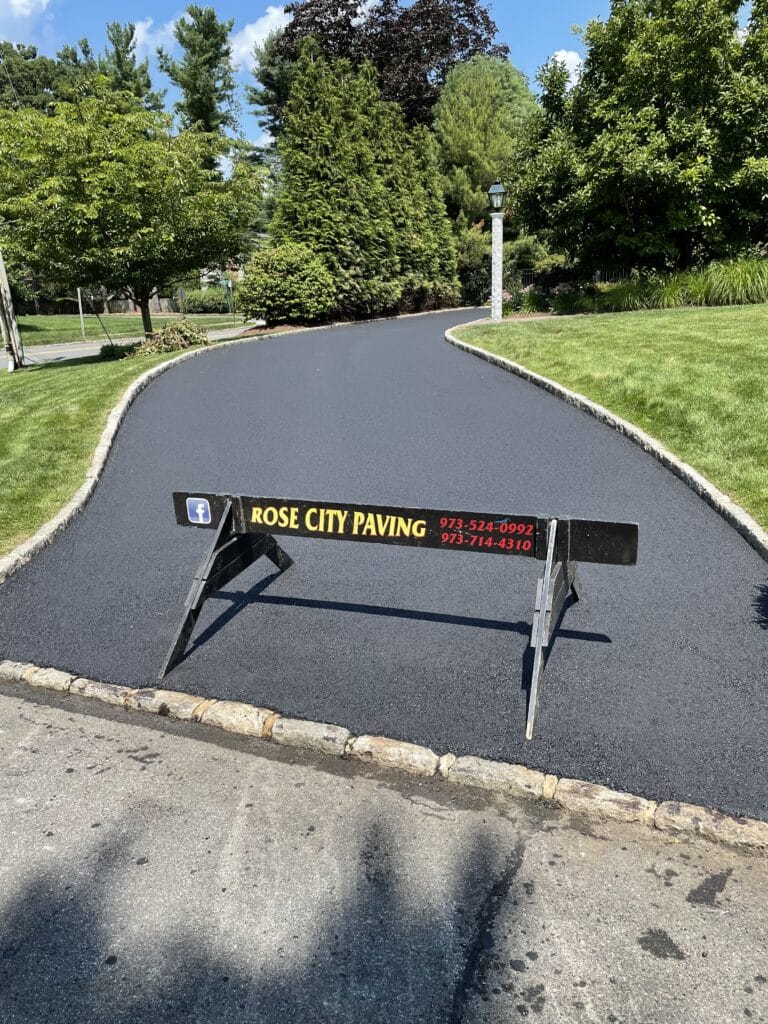Rejuvenate Your Residential Property with Regrading and Asphalt Sealing Methods
Warm Mix Asphalt: A Sustainable Option for Pavement
Hot Mix Asphalt (HMA) has actually arised as a leading lasting selection for pavement remedies, offering a myriad of environmental advantages and cutting-edge innovations. As the demand for green construction techniques expands, checking out the subtleties of HMA's sustainability can supply important insights into the future of sidewalk solutions.
Environmental Advantages of Hot Mix Asphalt

Moreover, Hot Mix Asphalt assists to mitigate city heat island effects. Its dark shade takes in sunlight, minimizing the quantity of warmth showed back right into the atmosphere compared to lighter-colored pavements. This can lower ambient temperature levels in metropolitan areas, reducing the need for cooling and ultimately decreasing energy intake.
Furthermore, Warm Mix Asphalt contributes to enhanced stormwater administration. Its porous nature allows water to reenergize and penetrate the pavement groundwater supplies, minimizing drainage and the danger of flooding. These ecological benefits make Warm Mix Asphalt a lasting selection for paving freeways and roads.
Power Effectiveness in HMA Manufacturing
Is power performance a vital factor in the manufacturing of Hot Mix Asphalt (HMA)? Absolutely. Power plays a considerable function in the production of HMA, affecting both expense and environmental sustainability. One key element of power performance in HMA production is making use of cozy mix asphalt (WMA) innovations (commercial parking lot paving). WMA permits the mixing and placement of asphalt at lower temperatures compared to conventional warm mix asphalt, causing minimized power consumption during manufacturing. This procedure not only reduces gas use yet likewise reduces greenhouse gas exhausts, making it an extra eco friendly option.
Moreover, innovations in plant innovations have led to more energy-efficient HMA production processes. By maximizing power use in HMA production, the sector can reduce its carbon impact while preserving premium sidewalk products.
Recyclability of Hot Mix Asphalt
The recyclability of Hot Mix Asphalt (HMA) is a crucial facet of its sustainability and long-term environmental effect. HMA is just one of one of the most recycled materials in the United States, with over 100 million tons of redeemed asphalt sidewalk (RAP) being recycled annually in brand-new sidewalk building and construction. Reusing HMA provides numerous environmental benefits, such as lowering the need for virgin materials, reducing energy usage throughout manufacturing, and reducing the amount of waste sent out to landfills.
The process of recycling HMA involves milling the existing sidewalk, crushing it right into smaller sized items, and mixing it with new accumulation and asphalt binder to produce a recycled mix. On the whole, the recyclability of HMA plays a substantial role in advertising sustainable practices within the pavement sector.

Long-Term Efficiency of HMA
Asphalt pavements demonstrate sturdiness and resilience over an extended duration, showing the lasting performance of Hot Mix Asphalt (HMA) Additionally, innovations in HMA technology, site here such as the use of polymer-modified binders and cozy mix asphalt, have actually further enhanced the toughness and longevity of HMA sidewalks. By prioritizing top quality construction and maintenance techniques, HMA continues to prove itself find more as a sustainable and cost-efficient option for long-lasting pavement framework.

HMA: Longevity and Sustainability
Showing both sturdiness and sustainability, Warm Mix Asphalt (HMA) has actually come to be a cornerstone in the building of lasting pavement infrastructures - regrading. HMA's toughness originates from its capability to hold up against heavy tons, extreme weather condition problems, and high web traffic quantities, making it a trusted choice for roadways, highways, and airport terminal runways. The structure of HMA, which commonly consists of accumulations, binder, and filler, plays a vital duty in improving its longevity and resistance to tear and wear
Additionally, HMA's sustainability depends on its recyclability and energy-efficient production procedure. The capacity to recycle redeemed asphalt pavement (RAP) in new HMA mixes reduces the need for virgin materials and minimizes the environmental effect of sidewalk building and construction and maintenance. Additionally, the energy effectiveness of generating HMA depends on its reduced mixing temperatures compared to various other sidewalk materials, leading to minimized energy consumption and greenhouse gas emissions.
Conclusion
Finally, warm mix asphalt (HMA) uses a lasting service for sidewalk with its ecologically pleasant features. HMA's recyclability, power effectiveness in click over here production, and lasting longevity make it an eco-friendly option for road building. By preserving natural deposits, minimizing waste, and lowering greenhouse gas discharges, HMA plays a critical function in advertising sustainability in facilities development. Its capacity to mitigate urban warmth island effects further highlights its relevance in producing environmentally conscious and resilient pavement systems.
HMA is one of the most recycled products in the United States, with over 100 million loads of recovered asphalt pavement (RAP) being reused each year in brand-new sidewalk building.The process of reusing HMA involves crushing the existing sidewalk, squashing it right into smaller pieces, and mixing it with new accumulation and asphalt binder to produce a recycled mix.Asphalt sidewalks demonstrate sturdiness and resilience over a prolonged duration, reflecting the lasting performance of Hot Mix Asphalt (HMA) In addition, developments in HMA modern technology, such as the use of polymer-modified binders and cozy mix asphalt, have actually additionally enhanced the durability and long life of HMA pavements. The capability to recycle recovered asphalt sidewalk (RAP) in brand-new HMA mixtures minimizes the need for virgin materials and reduces the ecological impact of sidewalk building and construction and maintenance.